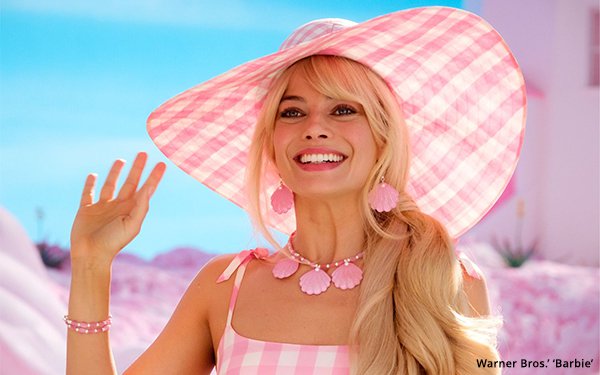Commentary
My Award For The Most Human Movie Of The Year
- by Gord Hotchkiss , Featured Contributor, March 12, 2024

This year I watched the Oscars with a different
perspective. For the first time, I managed to watch nine of the 10 best picture nominees (My one exception was “The Zone of Interest”) before Sunday night’s awards. And for each, I
asked myself this question, “Could AI have created this movie?” Not AI as it currently stands, but AI in a few years, or perhaps a few decades.
To flip it around, which of the best picture nominees would AI have the hardest time creating? Which movie was most dependent on humans as the creative engine?
AI’s threat to the film industry is on the top of everyone’s mind. It has been mentioned in pretty much every industry awards show. That threat was a major factor in the strikes that shut down Hollywood last year. And it was top of mind for me, as I wrote about it in my post last week.
advertisement
advertisement
So Sunday night, I watched as the 10 nominated films were introduced, one by one. And for each, I asked myself, “Is this a uniquely human film?” To determine that, I had to ask myself, “What sets human intelligence apart from artificial intelligence? What elements in the creative process most rely on how our brains work differently from a computer?”
For me, the answer was not what I expected. Using that yardstick, the winner was “Barbie.”
The thing that’s missing in artificial intelligence, for good and bad, is emotion. And from emotion comes instinct and intuition.
Now, all the films had emotion, in spades. I can’t remember a year where so many films driven primarily by character development and story were in the running. But it wasn’t just emotion that set "Barbie" apart; it was the type of emotion.
Some of the contenders, including “Killers of the Flower Moon” and “Oppenheimer,” packed an emotional wallop, but it was a wallop with one note. The emotional arc of these stories was predictable. And things that are predictable lend themselves to algorithmic discovery. AI can learn to simulate one-dimensional emotions like fear, sorrow, or disgust -- and perhaps even love.
But AI has a much harder time understanding emotions that are juxtaposed and contradictory. For that, we need the context that comes from lived experience.
AI, for example, has a really tough time understanding irony and sarcasm. As I have written before, sarcasm requires some mental gymnastics that is difficult for AI to replicate.
So, if we’re looking for backwater of human cognition that so far has escaped the tidal wave of AI bearing down on it, we could well find it in satire and sarcasm.
Barbie wasn’t alone in employing satire. “Poor Things” and “American Fiction” also used social satire as the backbone of their respective narratives.
What “Barbie” director Greta Gerwig did, with exceptional brilliance, was bring together a delicately balanced mix of contradictory emotions for a distinctively human experience. Gerwig somehow managed to tap into the social gestalt of a plastic toy to create a joyful, biting, insightful and ridiculous creation that never once felt inauthentic. It lived close to our hearts and was lodged in a corner of our brains that defies algorithmic simulation. The only way to create something like this was to lean into your intuition and commit fully to it. It was that instinct that everyone bought into when they came onboard the project.
Not everyone got “Barbie.” That often happens when you double down on your own intuition. Sometimes it doesn’t work -- but sometimes it does. “Barbie” was the highest grossing movie of last year. Based on that endorsement, the movie-going public got something the voters of the Academy didn’t: the very human importance of Gerwig’s achievement. If you watched the Oscars on Sunday night, the best example of that importance was when Ryan Gosling committed completely to his joyous performance of “I’m Just Ken,” which generated the biggest positive response of the entire evening for the audience.
I can’t imagine an algorithm ever producing a creation like “Barbie.”




I didn't watch The Oscars I only watch maybe one movie that is up for an Oscar which was Oppenheimer way too long could've been cut by an hour in my opinion. Was the movie you didn't see was Barbie Gord?
I think you make an excellent observation. The other nominee that AI would be hard pressed to have produced is "Past Lives." That story isn't something one "reads," it is somethin that one "lives." And AI, well...it doesn't live.
Jim - I loved Past Lives. In some ways, it was my favourite from among the nominated movies. The fact that it had a Canadian director was another plus for me - for purely personal reasons.